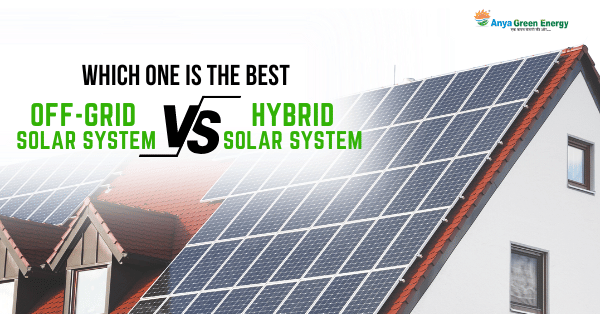HYBRID SOLAR SYSTEM FOR COLLEGE
Colleges and educational institutions play a crucial role in shaping the minds of the future generation. They are not only centers of learning but also hubs of innovation and sustainability. In an era marked by growing environmental concerns and the need for cost-effective energy solutions, colleges are turning to hybrid solar system for colleges as a smart choice for powering their campuses.
Get Hybrid Solar System for College:

In this blog, we will explore why choosing a hybrid solar system for colleges is a strategic decision, highlighting its importance, the myriad benefits it offers, and concluding on the bright future it promises.
Why choose hybrid solar system for colleges ?
Colleges are unique institutions with complex energy needs. They require a consistent and reliable source of power to ensure uninterrupted learning, research, and campus operations. A hybrid solar system, which combines the strengths of solar panels and other energy sources such as grid power and batteries, emerges as an ideal choice to meet these diverse requirements.
A. Sustainability: Colleges are increasingly focusing on sustainability as a core value. By adopting hybrid solar system for colleges demonstrate their commitment to reducing their carbon footprint and contributing to a greener future. Solar power is clean and renewable, helping institutions significantly cut down on their greenhouse gas emissions.
B. Energy Resilience: Ensuring a continuous power supply is crucial for colleges. Hybrid systems provide energy resilience by seamlessly switching between solar power, grid electricity, and stored energy in batteries. This safeguards against power outages and grid failures, maintaining the smooth functioning of educational activities.
C. Financial Savings: Colleges can make significant financial savings by harnessing solar energy. Solar panels generate electricity, reducing the reliance on expensive grid power. Additionally, excess solar energy can be stored in batteries for later use, further cutting down electricity costs.
D. Educational Opportunity: A hybrid solar system for colleges provides a unique educational opportunity for students. It serves as a living laboratory, allowing them to understand renewable energy technologies, energy management, and sustainability practices firsthand. This practical experience can be invaluable for students pursuing careers in environmental science, engineering, or related fields.
Benefits of hybrid solar system for colleges
-
Reliable Power Supply: The primary benefit of a hybrid solar system for colleges is a reliable and uninterrupted power supply. Solar panels generate electricity during daylight hours, and any excess energy can be stored in batteries. This stored energy can be used during the night or during cloudy days when solar generation is low. This ensures a consistent power supply for classrooms, laboratories, and administrative buildings.
-
Cost Savings: By generating their electricity, colleges can significantly reduce their energy bills. Solar power is not only environmentally friendly but also cost-effective in the long run. The savings from reduced energy costs can be reinvested in academic programs, infrastructure development, or other initiatives that benefit students and faculty.
-
Reduced Environmental Impact: Colleges play a crucial role in environmental education and advocacy. By embracing solar power, colleges set an example for sustainable practices. The reduction in carbon emissions and dependence on fossil fuels contributes to a healthier planet and aligns with the institution’s environmental goals.
-
Energy Independence: A hybrid solar system provides colleges with a degree of energy independence. They are not solely reliant on grid power, which can be vulnerable to disruptions. With solar panels and battery storage, colleges can generate and store their energy, reducing their vulnerability to power outages and grid failures.
-
Long-Term Investment: A hybrid solar system is a long-term investment that can pay off over decades. Solar panels have a lifespan of 25 years or more, and with proper maintenance, they can continue to generate electricity efficiently. This long-term sustainability aligns with the mission and values of educational institutions.
-
Educational Opportunity: Colleges can use their hybrid solar systems as educational tools. Professors can integrate renewable energy topics into their curriculum, and students can engage in research related to solar energy and energy management. This hands-on experience can enhance the educational experience and prepare students for careers in sustainability and clean energy.
Conclusion
In an era where environmental consciousness and sustainable practices are of paramount importance, adopting a hybrid solar system for colleges is a wise choice. These systems provide reliability, cost savings, reduced environmental impact, energy independence, and valuable educational opportunities.
By investing in solar power, colleges not only reduce their carbon footprint but also contribute to a cleaner and greener future. The adoption of hybrid solar systems demonstrates a commitment to sustainability, aligning with the values and goals of educational institutions. It’s a powerful step toward powering both campuses and minds for a brighter tomorrow.


